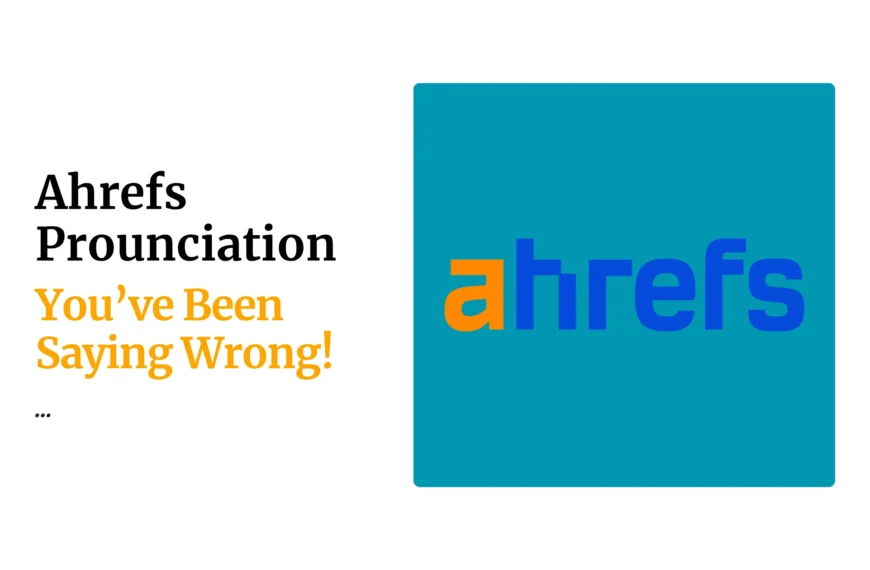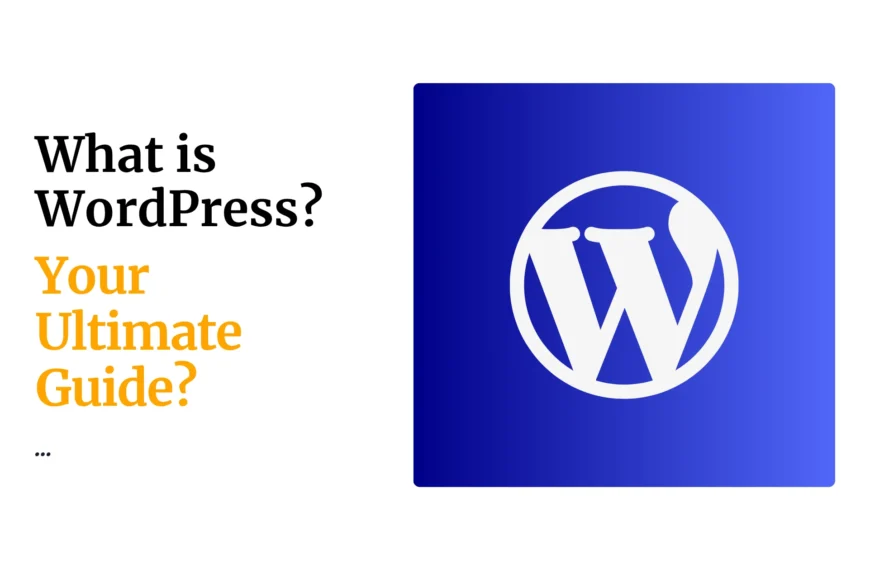The goal of any website user is to appear top of google search results. A huge number of websites use WordPress as their content management system and they all compete for first place on search engine result pages.
With such fierce competition, it might be difficult to rank well, which is why you should work to make your website more visible to search engines.
If you’re new to WordPress, you might not know what search engine visibility is or why it’s crucial. Search engine visibility is the percentage of traffic that a website obtains from its rankings in the organic search results.
If your website has a search visibility score of 0 percent none of its pages will appear in the top search results.
A score of 100%, however, indicates that you own the top spot for your particular keywords. Achieving 100% ownership is challenging, and the majority of websites rank in the middle 40% for non-branded keywords.
Having great search visibility is vital since you get significant traffic for your website. Consequently, you outrank your rivals and make it simpler for your target market to reach your website.
One of the best ways to guarantee you have high search visibility it’s through SEO.
What is SEO?
Search engine optimization (SEO) is a collection of tactics for strategies used to increase the visibility of your sites in search engine results.
Why is SEO important?
When you use SEO to optimize your website for search engines, there are many advantages.
- SEO raises the ranking of your website on search engine results pages. This increases visibility and traffic to your website.
- A website with a high ranking seems more reliable and credible
- SEO emphasizes creating high-quality content by doing this, you can present visitors with more pertinent and useful information.
Knowing the importance of having good search engine visibility and how SEO works to make your website more visible, let’s look at some of WordPress SEO’s best tips and tricks for optimizing your WordPress blog.
Since WordPress is already SEO friendly, setting up your blog on it is the first step toward optimizing it. This is one of the main factors why so many individuals start their blogs or websites on WordPress. However, to maximize your SEO efforts, you must take further steps.
#1. Check your site’s visibility settings
WordPress has integrated features that enable you to prevent the search engine from indexing your website. This is to ensure you work on your website before it’s ready to go to the public. Make sure this option is not checked otherwise your website will become unavailable to search engines.
Go to settings >Read and look for search engine visibility option, Uncheck the option, and Save changes.
#2. Set up SEO-friendly permalink structure.
Each web page has its permalink. The words in SEO-friendly URLS clearly explain the page’s content, and they are simple for both people and search engines to understand.
Visitors are more likely to trust permalinks that are easy to read than ones that contain random letters and digits. Using an SEO-friendly permalink structure increases your chances of getting better positions in search results.
Here’s how to inspect and update the permalink structure on your WordPress website. Head to Dashboard. > settings > permalinks to change the default permalink structure.
#3. Decide between www and non-www.
You must choose between www and non-www when you first launch your website since search engines view them as two distinct types of websites. Setting the format will help increase ranking.
The format for www is http://www.example.com while for non-www is http://example.com.
Visit the settings > general page to set your preference. Both the WordPress Address for the site address should include your selected URL.
#4. SSL Certificate
An SSL cert is a digital certificate that verifies a website’s identity for encrypting data delivered to the server. They are quite reasonably priced and you should be able to get one from your web provider.
Google now considers an SSL certificate to be a ranking criterion. Having one is essential for effective SEO.
#5. Install an SEO plugin
A WordPress plugin is application software that enables the capabilities of a WordPress website. It allows you to improve your blog’s functionality. Overall by adding functions that aren’t included in the core software.
SEO plugins provide you with the required tools to optimize a website’s content, speed, and user experience.
There are thousands of paid WordPress plugins and over 50,000 free plugins available, but it’s crucial to pick a plugin solely from trusted plugin sources. This is to prevent installing plugins with poor code that could damage your website.
#6. Add XML Sitemaps in WordPress
An XML sitemap is a unique file with code that contains a list of all the pages on your website. A good XML sitemap acts as a roadmap of your website that makes it easier for search engines to recognize that your website is updated and locate your content.
There are over 50,000 free plugins and thousands of premium WordPress plugins available but it is important to choose a plugin only from reputable plugin responsories. This is to avoid installing poorly coded plugins that may cause problems on your site.
#7. Add your site to the google search console
Google search console is a free tool that you can use to crack and troubleshoot how your website appears in google search results.
It helps you track the number of visitors to your site, work to improve your ranking, and decide how you want search results for your site to appear.
Using this information, you may determine what is and is not working on your site. In light of this, you can plan your content strategy.
#8. Inbound and Outbound linking
Inbound links are links that originate from other websites or different domain names while outbound links are those links on your website that point to other websites.
Both inbound and outbound links are crucial for SEO since they enhance user experience and give google more information. As a result, you bring good traffic to your blog. You are, however, supposed to use the links correctly.
#9. Properly using categories and tags in WordPress
WordPress allows you to organize your blog using categories and tags. While tags assist with more specific grouping, categories help you decide blog posts and pages into more generalized sections.
They both help search engines understand your website structure and content. Additionally, they enhance the user experience by making it easy for users to navigate through your site.
#10. Schema markup
Schema markup is a code that helps search engines in comprehending your content and accurately represent it in search results. It powers rich snippets, which frequently have higher click-through rates than normal search results. That implies more traffic to your site.
#11. Reduce the number of plugins
Whenever someone visits your page, all the active plugins on your WordPress website load code. Having many plugins can slow down your page and this may make visitors get frustrated and leave immediately.
Reducing unnecessary plugins can help improve your site’s speed and performance.
#12. Use breadcrumbs navigation
Breadcrumbs are links that show visitors their location on a website. Enabling them is a way of improving a website’s user experience and navigation. Breadcrumbs lower the bounce rate by enticing users to browse more pages on a website before leaving.
#13. Optimizing images in WordPress for SEO
Images are more interesting than text but they take longer to load. Make sure to choose photos that have been optimized to load quickly. You can optimize the images by making them smaller without losing quality.
Additionally, always utilize title tags and Alt captions with your images. These tags aid search engines in comprehending the subject matter of your image. They also benefit users who are visually impaired because their screen readers can interpret the alt text for them.
#14. Target long tail keywords
Many people use keyword research tools to help them find keywords that rank them high on search engines. Many times people use the same keywords as their competitors and this may make it hard for them to rank.
Target long tail keywords for your blog because they usually have a low level of competition in search engine result pages.
#15. Optimize your meta tags
The meta tags for your web page are usually the title tag and the meta description. They are both essential for SEO because they tell search engines about the content of your post.
A compelling title tag increases your click-through rate and as a result search engines rank you high. Meta descriptions summarize your content and make it visible on SERPs. For a meta description to bring impact on a page, it should contain keywords and a benefit that is likely to get more clicks.
#16. Use last updated dates
To keep your content current and pertinent, it should always be updated. This inspires trust in both users and search engines.
One of the elements influencing visitors’ decision to click on a page is the date of the most recent update. Users frequently seek out the most recent articles and information.
CONCLUSION
WordPress is a platform that supports SEO. However, there are things you can do to improve the performance of your content for search engine visibility.
You should be able to see your WordPress blog perform better in search engines if you implement a handful of SEO tips.
Related:
 Domain SearchInstantly check and register your preferred domain name
Domain SearchInstantly check and register your preferred domain name Web Hosting
Web Hosting cPanel HostingHosting powered by cPanel (Most user friendly)
cPanel HostingHosting powered by cPanel (Most user friendly) KE Domains
KE Domains Reseller HostingStart your own hosting business without tech hustles
Reseller HostingStart your own hosting business without tech hustles Windows HostingOptimized for Windows-based applications and sites.
Windows HostingOptimized for Windows-based applications and sites. Free Domain
Free Domain Affiliate ProgramEarn commissions by referring customers to our platforms
Affiliate ProgramEarn commissions by referring customers to our platforms Free HostingTest our SSD Hosting for free, for life (1GB storage)
Free HostingTest our SSD Hosting for free, for life (1GB storage) Domain TransferMove your domain to us with zero downtime and full control
Domain TransferMove your domain to us with zero downtime and full control All DomainsBrowse and register domain extensions from around the world
All DomainsBrowse and register domain extensions from around the world .Com Domain
.Com Domain WhoisLook up domain ownership, expiry dates, and registrar information
WhoisLook up domain ownership, expiry dates, and registrar information VPS Hosting
VPS Hosting Managed VPSNon techy? Opt for fully managed VPS server
Managed VPSNon techy? Opt for fully managed VPS server Dedicated ServersEnjoy unmatched power and control with your own physical server.
Dedicated ServersEnjoy unmatched power and control with your own physical server. SupportOur support guides cover everything you need to know about our services
SupportOur support guides cover everything you need to know about our services








